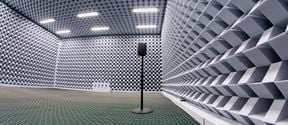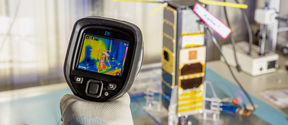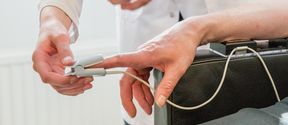|
Sähkötekniikan ja automaation laitos (EEA)
Automation and Control Engineering ELEC020Z
(in Finnish: Automaatio ja säätötekniikka)
(in Swedish: Automation och reglerteknik)
|
Prof. Dominik Baumann
Cyber-physical Systems
Prof. Shankar Deka
Nonlinear Systems and Control
Prof. Tomasz Kucner
Mobile Robotics
Prof. Ville Kyrki
Intelligent Robotics
Prof. Joni Pajarinen
Robot Learning
Prof. Simo Särkkä
Sensor informatics and medical technology
Prof. Arto Visala
Automatic control
Prof. Valeriy Vyatkin
Information Technologies in Industrial Automation
Prof. Quan Zhou
Robotic Instruments
|
|
Sähkötekniikan ja automaation laitos (EEA)
Robotics and Autonomous Systems ELEC021Z
(in Finnish: Robotiikka ja autonomiset järjestelmät)
(in Swedish: Robotik och autonoma system)
Doctoral studies in Robotics and Autonomous Systems include research in intelligent software and hardware solutions for robots and autonomous systems of all sizes ranging from miniaturized robotic instruments to heavy mobile machinery and application areas from industrial automation to service robotics. Current trends in the field include artificial intelligence, autonomous vehicles, human-robot interaction as well as distributed and decentralized systems.
Research in this field requires knowledge of signals and systems, optimisation, mechatronics, and programming and software skills. Additionally, the research often requires deep understanding of particular application fields, and multidisciplinary approaches are often required. The doctoral research provides opportunities for students to delve into their favourite theoretical topics or develop novel scientific and engineering methods with high-impact real-world applications. Doctoral students will access the world-class equipment and facilities of the research groups. These include state-of-the-art automation systems, robotic systems from miniature to macro scale, and various autonomous vehicles, engines and drones.
Professors in Robotics and Autonomous Systems are well known internationally and widely networked. Their doctoral students will become part of the global community through participating in international conferences and active collaboration and exchange with top international and national universities and companies.
Doctoral students can include in their studies regular courses of this field (control theory, robotics, machine learning, and mathematics), relevant seminars organised by research groups, and when applicable, courses that are important to their research from other departments, schools or universities. After successful completion of the research training, a doctor of Robotics and Autonomous Systems will readily find a job in a wide variety of high-tech engineering companies and consulting firms, pursue an academic career at a university, or become a successful entrepreneur.
|
Prof. Dominik Baumann
Cyber-physical Systems
Prof. Shankar Deka
Nonlinear Systems and Control
Prof. Tomasz Kucner
Mobile Robotics
Prof. Ville Kyrki
Intelligent Robotics
Prof. Joni Pajarinen
Robot Learning
Prof. Simo Särkkä
Sensor informatics and medical technology
Prof. Arto Visala
Autonomous systems
Prof. Valeriy Vyatkin
Information Technologies in Industrial Automation
Prof. Quan Zhou
Robotic Instruments
|
|
Sähkötekniikan ja automaation laitos (EEA)
Electronic and Digital Systems ELEC022Z
(in Finnish: Elektroniset ja digitaaliset järjestelmät)
(in Swedish: Elektroniska och digitala system)
|
Prof. Mervi Paulasto-Kröckel
Electronics integration and reliability
Prof. Simo Särkkä
Sensor informatics and medical technology
Prof. Ivan Vujaklija
Bionic and Rehabilitation Engineering
|
|
Sähkötekniikan ja automaation laitos (EEA)
Biosensing and Bioelectronics ELEC023Z
(in Finnish: Biomittaaminen ja bioelektroniikka)
(in Swedish: Biomätteknik och bioelektronik)
|
Prof. Ilkka Laakso
Electromagnetics in Health Technology
Prof. Tomi Laurila
Microsystems Technology
Prof. Simo Särkkä
Sensor informatics and medical technology
Prof. Ivan Vujalkija
Bionic and Rehabilitation Engineering
|
|
Sähkötekniikan ja automaation laitos (EEA)
Electrical Power and Energy Engineering ELEC024Z
(in Finnish: Sähkö- ja energiatekniikka)
(in Swedish: Elkraft- och energiteknik)
|
Prof. Anouar Belahcen
Computational electromechanics
Prof. Marko Hinkkanen
Electric drives
Prof. Jorma Kyyrä
Illumination engineering
Prof. Matti Lehtonen
Power systems and High Voltage Engineering
Prof. Zhengmao Li
Prof Mahdi Pourakbari Kasmaei
Power and Energy Systems
Prof. Edris Pouresmaeil
Renewable Energies for Power Systems
|
|
Elektroniikan ja nanotekniikan laitos (ELE)
Electronics ELEC025Z
(in Finnish: Elektroniikka)
(in Swedish: Elektronik)
Doctoral studies in electronics deepen the student’s knowledge on electronic circuits focusing on skills relating to integrated circuit design. In electronics, students can focus on analogue, digital, radio frequency, millimetre-wave or mixed-mode signal design. Current trends in this field are the replacement of accurate analogue circuits with digitally assisted mixed-mode circuits and the utilization of high frequency (>100GHz) circuits in wireless and imaging applications or the development of energy-efficient circuits for embedded artificial intelligence.
The design of integrated circuits and electronics requires a versatile knowledge of design software, and a practical knowledge of integrated circuit measurements, in addition to theoretical skills. Doctoral research will give the student a chance to specialize in a favorite topic, like sensor circuits, integrated transceivers, energy harvesting or A/D and D/A converters or machine-learning hardware accelerators, and thereby generate new results. Doctoral students will get a chance to use Aalto’s outstanding measurement facilities, such as the integrated-circuit measurement laboratory and the industry-compatible nanoscale circuit design environment.
In integrated circuit design, we collaborate closely with national and international companies. Hence, the topics of the doctoral studies are typically linked to applications currently being developed by industry for their future products, including digital transceivers, radio-frequency circuits for multi-antenna systems and low-power sensor circuits. Professors Kari Halonen, Jussi Ryynänen and Martin Andraud are globally networked and their students introduce their research results in top journals and conferences.
Doctoral students can include in their theoretical studies several regular courses in this research field. In addition, the doctoral studies may include courses on signal processing, microwave engineering or e.g. the nanotechnology of data science. Our students with a doctoral degree in electronics design will typically find a job in a high-tech company, research institute, or university in Finland or abroad.
You can find more information of us and our research on Electronic Circuit Design.
|
Prof. Kari Halonen
Kari Halonen Group
Prof. Marko Kosunen
Prof. Jussi Ryynänen
Jussi Ryynänen Group
|
|
Elektroniikan ja nanotekniikan laitos (ELE)
Photonics and Nanotechnology ELEC026Z
(in Finnish: Fotoniikka ja nanotekniikka)
(in Swedish: Fotonik och nanoteknik)
The doctoral studies in photonics and nanotechnology focus on fundamentals and applications of advanced nanomaterials and their hybrid nanostructures. For example, novel materials such as graphene and many other thin 2-dimensional materials have important applications in both electronics and photonics. Many other functional and even quantum materials can also be realised by modifying their structures and properties of existing materials, especially on the nanoscale. New directions in photonics include new laser sources, fast data interconnection, novel sensors and imaging systems, and quantum technologies.
The doctoral students make extensive use of the national infrastructure Otanano (state-of-the-art clean room and related measurement and characterisation infrastructure). The students learn to develop micro- and nanotechnology-based novel applications and to perform theoretical simulations and modelling. The professors in this research field have extensive collaboration with the leading universities, research organisations and companies. Their offices and laboratories are located in the Micronova building in Tietotie 3 and at Maarintie 8.
|
Prof. Erkki Ikonen
Metrology Research Institute
Prof. Harri Lipsanen
Nanoscience and Advanced Materials
Prof. Hele Savin
Electron Physics
Prof. Caterina Soldano
Organic Electronics
Prof. Markku Sopanen
Optoelectronics
Prof. Zhipei Sun
Photonics
Prof. Ilkka Tittonen
Micro and Quantum Systems
|
|
Elektroniikan ja nanotekniikan laitos (ELE)
Radio Science and Engineering ELEC027Z
(in Finnish: Radiotiede ja -tekniikka)
(in Swedish: Radiovetenskap och radioteknik)
We are surrounded by wireless devices and the amount of wirelessly transmitted data is growing exponentially. Radio science and engineering is at the core of this development and our post-graduate students will be the future trailblazers in this field.
Our focus areas cover a wide range of radio science and engineering subjects – antennas and propagation, artificial materials, systems and components, circuits, numerical and theoretical electromagnetism and terahertz and measurement techniques. Depending on the focus area, the post-graduate studies may necessitate a solid background in mathematics, physics, circuit analysis and electromagnetic field theory.
Research related to post-graduate studies in radio science and engineering may be either academic or applied in nature, depending on the focus area. Research into artificial materials, for instance, may aim at finding new electromagnetics functionalities of materials in general, whereas antenna research may focus on antenna solutions for future mobile devices. Applied research is typically done in close collaboration with companies.
Research in radio science and engineering relies on theories, numerical simulations and experiments. Numerical simulation and design tools have particularly improved during the past decades and they are now widely used in various design tasks. Our research activity is also fully supported by extensive radio frequency measurement facilities which are capable of working working up to terahertz. Our graduates are employed well in companies and academia.
|
Prof. Viktar Asadchy
Designer Materials and Devices
Prof. Katsuyuki Haneda
Antennas and propagation
Prof. Keijo Nikoskinen
Electromagnetics
Prof. Ari Sihvola
Electromagnetics
Prof. Konstantin Simovski
Advanced Electromagnetic Materials and Structures
Prof. Sergei Tretyakov
Advanced Electromagnetic Materials and Structures
Prof. Zachary Taylor
Millimetre Wave and THz Techniques
Prof. Ville Viikari
Antennas and Wireless Sensors
|
|
Elektroniikan ja nanotekniikan laitos (ELE)
Space Science and Technology ELEC008Z
(in Finnish: Avaruustiede ja -tekniikka)
(in Swedish: Rymdfysik och rymdteknik)
Doctoral studies in space science and technology focus on space technology, Earth observation, space physics, and radio astronomy. Our research topics include the designing and building of satellite systems and space instruments, Earth observation by airborne and spaceborne microwave instruments, analysis of data from Earth observation and space physics, space weather and solar system dynamics, radio astronomical techniques, and the study of active galactic nuclei and galactic objects. Space-related services such as weather forecasts, environmental monitoring, and navigation and telecommunication services are rapidly growing, with nanosatellite technologies providing access to space at low cost and short time.
Finnish investments in space have risen anew, with several cubesat programs in orbit and under development, and commercial nano- and microsatellites coming to market with a wide variety of services. This highlights the need to understand the electromagnetic and plasma environment of space in order to design and operate space assets in a way that protects their operative capabilities. The analysis of long time series of satellite data to understand environmental and climate changes, or monitoring the data of active galactic nuclei are among Aalto’s current focus areas.
Doctoral students typically include advanced astronomy, plasma and space physics, and space technology courses in their theoretical studies. Mathematics, programming, and statistics courses support the skills required of a researcher in these fields. The students get unique hands-on experience in designing, building, testing and operating nanosatellites, in designing and building ground-based and space-based space research instrumentation, or e.g. in making radio astronomical observations with the Metsähovi Radio Observatory's large telescope. Students can also be involved in observations made with instruments aboard European Space Agency (ESA) missions or Aalto's space instruments aboard its own small satellites, or participate in developing and using state-of-the-art space-weather computer simulations. Students typically include these data and results in their theses.
Students are integrated into the research teams, many of them highly international, and are able to establish their own networks through research work, and participate in conferences and summer schools. Doctors in space science and technology will be qualified for research work in one of the focus areas, for work in large space organisations, or for work in the industry or public sector
|
Prof. Esa Kallio
Space Physics
Prof. Anne Lähteenmäki
Radio Astronomy
Prof. Jaan Praks
Space Technology
Prof. Miina Rautiainen
|
|
Informaatio- ja tietoliikennetekniikan laitos, DICE
Signal Processing and Data Analytics ELEC028Z
(in Finnish: Signaalinkäsittely ja data-analyysi)
(in Swedish: Signalbehandling och dataanalys)
Signal Processing is a multidisciplinary research field with strong connections to applied mathematics, machine learning, information theory, data analysis and electrical engineering. Topics of our research groups cover a broad spectrum of research areas, including wireless communications, advanced radar technologies, statistical signal processing, cognitive systems, large-scale data analysis, statistical learning, optimisation theory, smart grids, localisation systems and technologies, multisensor systems, and the Internet of Things.
Professors: Visa Koivunen, Esa Ollila, Sergiy Vorobyov, Risto Wichman
Measurement science at SPA focuses on optical metrology. Key research topics include development of state-of-the-art light detectors, challenges related to new energy-efficient lighting products, degradation of materials due to optical radiation and the measurement of very small light intensities. The research work is often cross-disciplinary; in addition to optical measurements, it may also include design of electronics and measurement devices, material research and computer simulations.
Professors: Erkki Ikonen
|
Prof. Filip Elvander
Prof. Erkki Ikonen
Metrology Research Institute
Prof. Visa Koivunen
Signal processing
Prof. Esa Ollila
Signal processing
Esa Ollila Group
Prof. Sergiy Vorobyov
Signal processing
Prof. Risto Wichman
Signal processing
|
|
Informaatio- ja tietoliikennetekniikan laitos, DICE
Acoustics and Speech TechnologyELEC029Z
(in Finnish: Akustiikka ja puheteknologia)
(in Swedish: Akustik och talteknologi)
Acoustics and audio signal processing focuses on spatial sound technologies, digital music signal processing, and acoustic virtual reality, among others. Current trends are digitisation, such as the replacement of sound production tools with software, and novel communication and entertainment systems, which employ telepresence technologies.
Professors: Tapio Lokki, Ville Pulkki, Vesa Välimäki
Speech and language technology refers to information technology that processes and utilises spoken and written language. It has many applications in the area of AI and ICT, particularly those related to man–machine interfaces and communications technology. Examples of applications are speech recognition, speech synthesis, speech coding and enhancement, automatic language translation and information retrieval.
Professors: Paavo Alku, Tom Bäckström, Mikko Kurimo
|
Prof. Johannes Arend
Prof. Paavo Alku
Speech communication technology
Prof. Tom Bäckström
Speech Interaction Technology
Prof. Lauri Juvela
Prof. Mikko Kurimo
Speech recognition
Prof. Tapio Lokki
Virtual Acoustics
Prof. Ville Pulkki
Communication acoustics: spatial sound and psychoacoustics
Prof. Vesa Välimäki
Audio signal processing
|
|
Informaatio- ja tietoliikennetekniikan laitos, DICE
Communications Engineering and Networking Technology ELEC030Z
(in Finnish: Tietoliikenne- ja tietoverkkotekniikka)
(in Swedish: Kommunikations- och nätverksteknik)
In the past few decades, networks, both wireless and fixed, have evolved at an astonishing pace. Mobile networks are bringing new capabilities that extend the scope of the technology far beyond voice and data transfer. Mobile technology holds a great promise to revolutionize connectivity in various vertical sectors including automotive, smart cities, health care and industrial sectors to name a few. More research is needed to support the evolution of mobile networks to better meet the demands of the new applications, to manage the ever-increasing complexity of the mobile communication systems as well as to improve the network security and energy efficiency. The communications engineering and networking technology research spans from information and communications technologies to cloud networking, internet protocols and network business.
Doctoral students in communications engineering and networking technology focus inter alia on fundamentals of information and communications theory, quantum communications, wireless communications and sensing, mobile communication systems, network softwarization and orchestration, software defined radio, software defined networking, cloud networking, internet technologies, network security, and the techno-economics of the overall communications ecosystem.
The supervising professors are internationally known experts and widely networked researchers. With the help of their professors, the doctoral student can become a member of the global research community, publishing in top-tier journals and giving talks at international conferences. Aalto's communications engineering and networking technology research is often conducted in close collaboration with leading industrial stakeholders and academic partners of international calibre.
Doctoral students can attend courses in their theoretical studies in communications engineering and networking technology and participate in seminars on telecommunications technology. Also, well suited to theoretical studies are courses on signal processing, information technology, machine learning and other mathematics courses. Doctors in communications engineering can find employment at home and abroad in high technology companies, consultancy offices and universities. Some of our graduated doctoral students have also become successful entrepreneurs.
Doctoral research gives the opportunity to develop new methods to improve future telecommunication systems. Doctoral students have access to the well-equipped laboratories and campus wide test mobile network at Aalto University, enabling them also to do experimental research.
Communications engineering and networking technology research requires extensive knowledge of telecommunication systems, where the role of individual technology as a part of the whole is clearly understood. A strong mathematical background and knowledge of signal processing is essential for the development of physical-layer data-transfer methods. Research topics in networking technology are multidisciplinary and often related to security, network softwarisation, constrained IoT and wearable nodes. Programming competence in all the layers of data transfer is important.
|
Prof. Jyri Hämäläinen
Wireless & Mobile Communications
Prof. Riku Jäntti
Communications Engineering
Prof. Jukka Manner
Internet technologies
Prof. Petri Mähönen
Prof. Gopika Premsankar
Cloud and Network Computing
Prof. Olav Tirkkonen
Communications Theory
Prof. Risto Wichman
Wireless & Mobile Communications
Prof. Patric Östergård
Information Theory
|
|
Informaatio- ja tietoliikennetekniikan laitos, DICE
Interactive Systems ELEC031Z
(in Finnish: Vuorovaikutteiset järjestelmät)
(in Swedish: Interaktiva system)
Rapid advances in sensing, hardware, algorithms, software, and networks have opened remarkable new possibilities for interactive technology and smart environments. PhD studies in Interactive technologies comprise technical principles of novel technology, theory of algorithms and software while bridging towards interdisciplinary areas such as Human-Computer interaction, Augmented and Virtual Reality, as well as Mobile, Pervasive and Ubiquitous Computing. The program educates future experts and leaders who use advanced methodology and technology to innovate and improve information technology for the benefit of people.
Doctoral students in Interactive technologies focus, among others, on energy efficient mobile, pervasive and ubiquitous computing, augmented, virtual and mixed reality, crowdsourcing, ambient intelligence, applied machine learning, artificial intelligence, wearable technology, environmental sensing and perception, usable security, concept creation, interface technologies, algorithms, data, modeling, communications and networking.
The supervising professors are internationally known experts and widely networked researchers. They support doctoral students to become a member of the global research community, publishing in top-tier journals and giving talks at international conferences. Aalto's Interactive technologies research is conducted in close collaboration with internationally renowned academic experts and leading industrial players.
Doctoral students can attend courses in their theoretical and experimental studies in Interactive technologies and participate in seminars on selected advanced topics. Well suited to doctoral studies are courses on user research, user interface design, machine learning and other math courses. PhDs in Interactive technologies are employed in high technology companies, consultancy offices and universities. Some of our graduated doctoral students have also become successful entrepreneurs.
Doctoral research gives the opportunity to develop new methods to create future interactive systems. Doctoral students have access to the well-equipped laboratories and a campus wide test mobile network at Aalto University, enabling them also to do experimental research.
Interactive technologies research requires extensive knowledge, for instance, in the fields of algorithms for optimization and model training, human computer interaction, or distributed systems. A strong mathematical background and knowledge of machine learning tools is essential for the development of interactive technology and smart interaction methods. Research topics in Interactive technologies are multidisciplinary and, for instance, related to extended reality, user research, cloud/edge/fog computing, (usable) security, sensing, human-computer interaction, constrained IoT and wearables. Programming proficiency is important.
|
Prof. Antti Oulasvirta
Human Computer Interaction
Prof. Stephan Sigg
Ambient Intelligence
Prof. Yu Xiao
Mobile Cloud Computing
|



